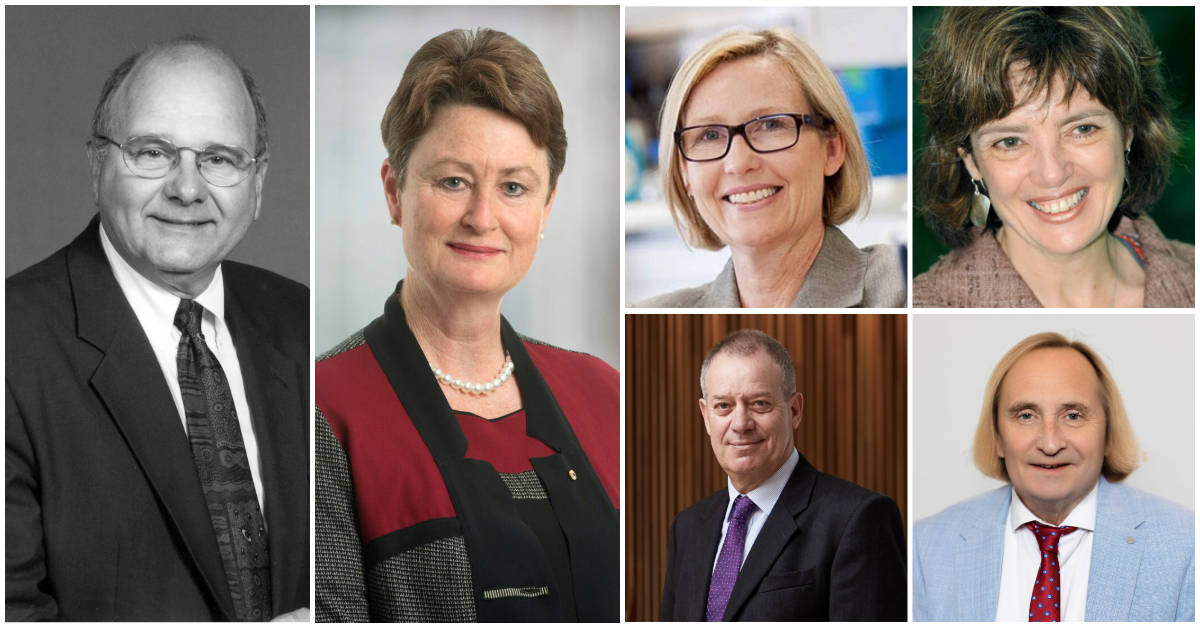
Six Academy Fellows have been recognised for their outstanding contributions to science by being named on the 2024 Australia Day honours list.
Emeritus Professor David Boger and Ms Catherine Livingstone are two of just four people to receive the highest honour, appointed to the Companion of the Order of Australia (AC) recognising their “eminent achievement and merit of the highest degree in service to Australia or to humanity at large”.
Professor Boger is an internationally recognised expert in non-Newtonian fluid mechanics.
He is responsible for the discovery of constant viscosity elastic liquids, now known as Boger fluids, and was awarded the Prime Minister’s Prize for Science in 2005 for this pioneering work in fluid mechanics.
Professor Boger’s discovery of these ‘perfect non-Newtonian’ fluids has been used in varied research, from solving problems in large-scale mining projects to the use of fluids in nanotechnology.
Elected to the Academy in 1993, Professor Boger served as a Committee Member (1995 – 1998) and as a Council Member (1999 – 2002) of the Australian Academy of Science.
He received the Mathew Flinders Medal in 2000, an award recognising scientific research careers of the highest standing in physical science.
Professor Boger receives his AC “for eminent service to chemical engineering as a scientist, academic and researcher, particularly in the field of non-Newtonian fluid mechanics, and to the environment”.
Ms Livingstone, elected to the Academy in 2014, is passionate in her belief that science and technology have critical roles in the future development of Australia.
Current Chancellor of the University of Technology Sydney, her career in leadership spans science, technology, innovation and arts.
Ms Livingstone champions the technology that drives any company where she is in the leadership team.
Ms Livingstone, who was previously recognised as an Officer of the Order of Australia (AO) in 2008, now receives the highest honour “for eminent service to business, particularly through governance and strategic reform, to tertiary education, to science, technology and innovation capability development, and to the arts”.
A world-renowned reproductive biologist, Professor Robertson was elected to the Academy in 2016.
She is a champion of reproductive health. Her research shows that the immune system plays a vital role in the health and wellbeing of embryo development.
As a research leader at the University of Adelaide, her team continues to improve practices in reproductive medicine, developing applications for treating infertility and providing insight into early-life origins of child health.
Professor Robertson receives her AO “for distinguished service to medical research, particularly reproductive biology and immunology, and to professional societies”.
Professor Ryan is an internationally recognised statistician for her methodological contributions to statistical methods for cancer and environmental health research.
Elected to the Academy in 2012, she is well known for her leadership ability and passion for mentoring young scientists.
Currently a Council Member of the Australian Academy of Science, Professor Ryan blends statistical research methods with applications in the real world, particularly in the health and environmental domains.
Professor Ryan receives her AO “for distinguished service to biostatistical research and methodology, to environmental science, and to professional societies”.
Professor Trapani is an immunologist at the Peter MacCallum Cancer Centre, researching the interaction between the immune system and cancer.
Elected in 2018, Professor Trapani is interested in harnessing the power of the immune system to devise new ways of treating cancer.
Professor Trapani receives his AO “for distinguished service to medical research, particularly immunology and the development of immune-based cancer therapies, and to the community”.
Professor McBratney, elected to the Academy in 2016, has made major contributions to soil science and agriculture through his research on understanding the properties of soil (pedometrics), digital soil mapping and precision agriculture.
He is passionate about the sustainable use and management of the soil system.
From the University of Sydney, Professor McBratney made expert contributions to the Academy’s evidence brief on Soil conditions after bushfires, providing recommendations to governments on helping our soil recover from bushfires.
Professor McBratney receives his AM “for significant service to soil science through research and education, and to the development of digital mapping techniques”.
© 2025 Australian Academy of Science